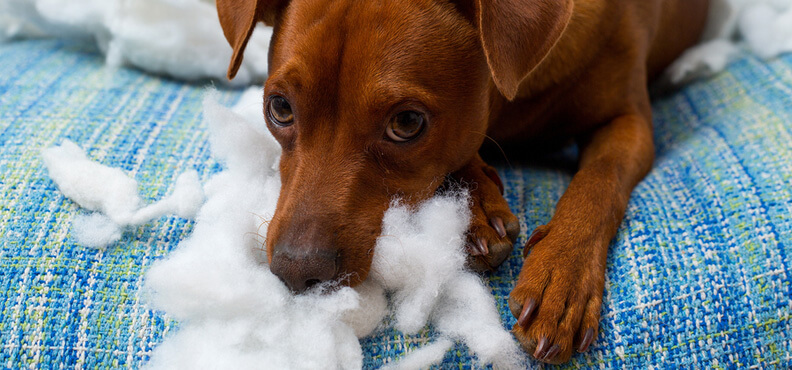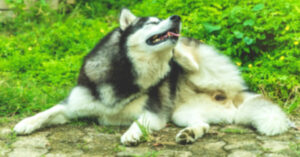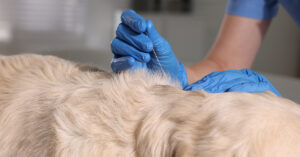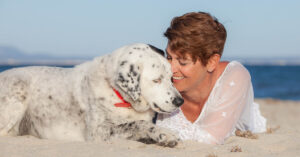Does your dog whine, cry, bark or become destructive when you leave the house? He may be coping with anxiety as a result of being separated from you. This is a very common problem many pet owners are faced with.
Pet separation anxiety can be a frustrating and costly problem. It is usually more than just “my pet misses me when I’m gone” and usually involves some sort of destructive behavior when you leave.
There have been several medications approved for the use in pet separation anxiety, most commonly Clomicalm and Reconcile. These are usually used as a last resort and must be used in combination with behavioral modification to be successful. Trainers may be able to help work with you and your pet to ease the anxiety around you leaving your pet, but it is important to recognize that pet separation anxiety is a behavioral issue and won’t be addressed in basic obedience” training. There are more specialized animal behaviorists that make house calls and this can be a good option to address the problem as well.
Below is a method I recommend trying to begin working on a pet’s separation anxiety. It involves desensitizing your pet to your habits around leaving and returning to the home to ease the pet’s fears of being alone and prevent destructive behavior.
Before Leaving
- Pay no attention to your dog for 10 to 30 minutes before going out. When you do leave, make it low-key, without elaborate good-byes. Just walk out the door.
- Leave a special toy or treat to distract your dog when you go out, and remove the item upon your return. Make it something special, like a food-filled treat (something like a Kong toy), so that your leaving is associated with something positive. The treat should also occupy your dog during those critical first moments after your departure have a peek here.
When Returning
- Ignore your dog until he or she is quiet and relaxed. You may not realize it, but even eye contact can be rewarding to a dog seeking attention. Interact with your dog only when he or she is quiet, thus rewarding his calm behavior.
- Do not reprimand your dog for destructive behavior or for urinating or defecating in your house. No matter what you find when you get home, remember that your dog could not control himself when you were away. Punishment will not help — it will only add to your dog’s anxiety.
At Home
- Interact with your dog only at your initiative and when the dog is relaxed. Again, show your dog that you like to play with him when he’s calm and relaxed. To promote independence, avoid constant physical contact with your dog. Encourage him to lie down near you, but not in contact with you.
- Teach your dog to stay calm as you move away, gradually increasing your time and distance away. Teach your dog to be alone, little by little. Have him or her sit or lie down and stay in place as you back away, praising the dog’s calm behavior. Gradually increasing your time and distance away helps your dog become more independent, and enables him or her to adapt to being alone.
- Certain cues tell your dog that you are getting ready to leave. When your dog sees this, panic sets in. Put your coat on or play with your keys at times other than departure. This technique will help your dog become indifferent to those cues.
Dogs are very aware of our emotions and will often reflect them. It is very important that you not let your anxiety be perceived by your dog and remain calm during the process.
As always, consult your veterinarian who can be a great resource of information and prescribe medication if needed.



